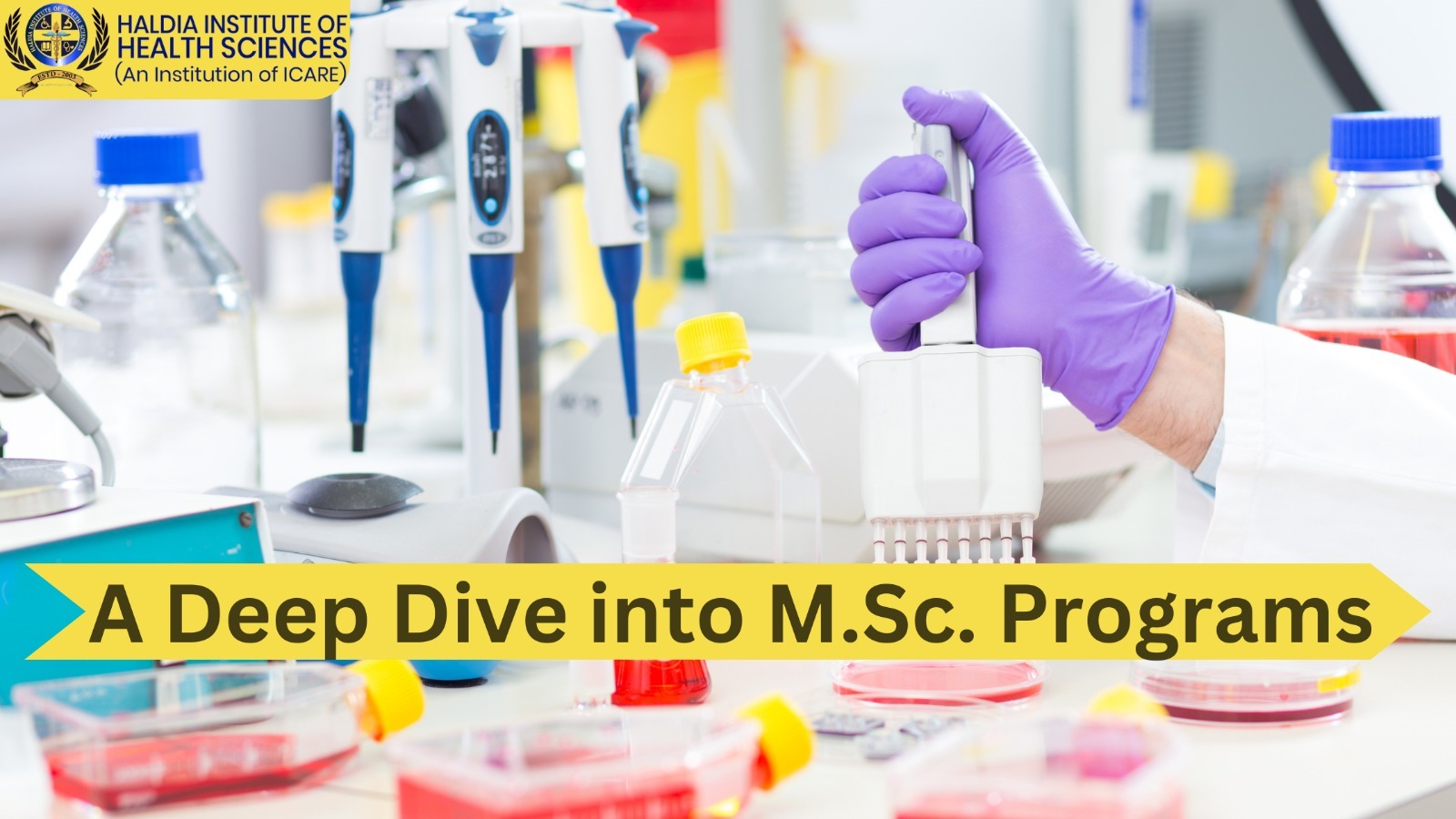Latest Notifications

Blog

A Deep Dive into M.Sc. Programs
In the ever-evolving landscape of healthcare, the role of clinical biochemistry has become increasingly pivotal. M.Sc. programs in Medical Laboratory Technology with a specialization in Biochemistry are at the forefront of preparing professionals with the knowledge and expertise to employ advanced techniques in clinical settings. In this exploration, we take a profound dive into how our college which is Top Paramedical College in West Bengal that these programs equip students with cutting-edge skills that contribute to advancements in diagnostics, patient care, and biomedical research.
1. Instrumentation Mastery: Navigating High-Tech Laboratory Equipment
M.Sc. programs delve into the intricacies of state-of-the-art laboratory instruments. From mass spectrometers to high-performance liquid chromatography (HPLC), our students gain hands-on experience, mastering the operation and calibration of these advanced tools crucial for biochemical analysis.
2. Molecular Diagnostics: Unlocking Genetic Insights for Precision Medicine
Our M.Sc. programs emphasize molecular diagnostics, empowering students to unravel genetic information. Techniques such as polymerase chain reaction (PCR) and next-generation sequencing (NGS) are covered, enabling future professionals to contribute to the era of precision medicine.
3. Metabolomics and Proteomics: Analyzing Biomolecular Signatures
An in-depth look at how M.Sc. programs immerse students in the realms of metabolomics and proteomics. By understanding the intricate interplay of metabolites and proteins, graduates are poised to decipher biomolecular signatures that hold critical diagnostic and therapeutic implications.
4. Immunological Assays: Precision in Detecting Biomarkers
The significance of immunological assays in clinical biochemistry. M.Sc. programs equip students with the skills to develop and apply assays like enzyme-linked immunosorbent assays (ELISA) and flow cytometry, enabling the precise detection of biomarkers indicative of various diseases.
5. Point-of-Care Testing: Rapid and Accurate Diagnostics
The role of point-of-care testing in clinical biochemistry. M.Sc. programs train students to navigate portable diagnostic devices, ensuring they are proficient in delivering rapid and accurate results at the patient's bedside, particularly crucial in emergency and outpatient settings.
6. Advanced Data Analysis: Transforming Raw Data into Insights
A focus on how M.Sc. programs go beyond teaching techniques by emphasizing advanced data analysis. Graduates are equipped with the skills to process and interpret complex datasets generated through biochemical analyses, extracting meaningful insights to inform clinical decision-making.
Conclusion:
In conclusion, M.Sc. programs in Medical Laboratory Technology at our college focuses on Biochemistry play a transformative role in shaping professionals who are not merely users but innovators of advanced techniques in clinical biochemistry. By providing a comprehensive education that includes theoretical knowledge, hands-on training, and a deep understanding of emerging technologies, these programs contribute to the continual evolution of diagnostics and patient care. Graduates emerge as leaders in the field, poised to make significant contributions to healthcare through the application of advanced techniques in clinical biochemistry.

